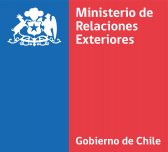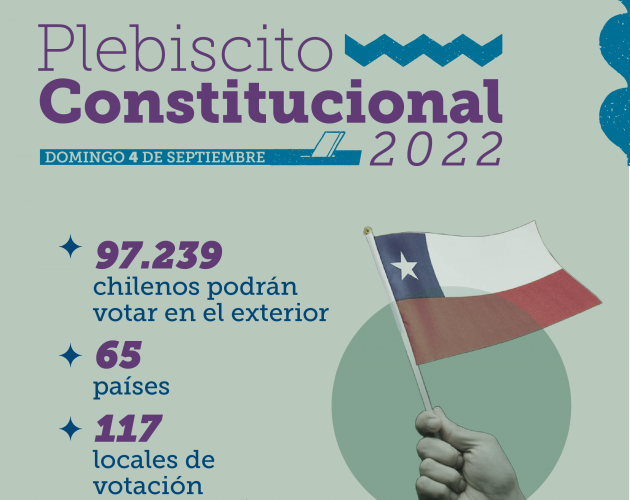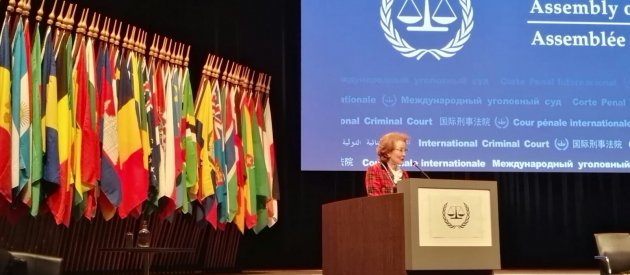New Chilean embassy expected to promote dialogue, cooperation
August 9, 2015 by Stabroek News
With Chile’s establishment of a resident embassy in Georgetown, more opportunities are expected to be available for dialogue and cooperation between the two countries, deputy-director of the Diplomatic Academy of Chile Patricio Powell says.
“A permanent embassy is always closer than a non-resident embassy. Some-times communication is not easy just for technical reasons and definitely a presence will help deepen those links and just make them more personal,” Powell told Stabroek News in an interview at the Andres Bello Diplomatic Academy in Chile’s capital, Santiago recently.
The embassy was supposed to be opened last week, however, the ambassador is yet to arrive in the country.
Powell said there has always been a close connection between Chile and Caribbean countries as well as Caricom as an organisation. However, the deputy-director said, so far contacts have been promoted through a non-resident embassy and also in international organisations. He noted that there is very active dynamic dialogue with Caricom countries and Guyana at the Organisation of American States (OAS).
According to Powell, with a permanent embassy the Chilean Ambassador would push for a stronger presence and the participation of Guyanese diplomats not only in the international course offered by the Academy but in other initiatives that arise from time to time which normally involve some form of technical training. “There’s no doubt that a resident embassy basically expands the opportunities and the strength and the dialogue…even though what we have now is not bad,” Powell asserted.
The Diplomatic Academy has offered an international course focused on issues that are of interest to Caribbean countries in which Caribbean diplomats have participated. “This will be part of the dialogue when our embassy opens there….whatever specific interest that the Guyanese government may have, they will be transmitted to our embassy, we will transmit the Chilean view also on issues and it helps create a better dialogue in terms of…tailoring certain initiatives to something that is of closer interest to the countries,” Powell said.
In terms of Chile’s interest in Guyana, Powell pointed to Guyana’s status as both a South American and Caribbean nation. “I think that beyond the limitations that budgets pose—because that’s the reality for any country—
Guyana is active in South America, it’s active in the Caribbean, it’s active in international fora that deal with issues that are also of interest to Chile,” he said.
In terms of areas in which Guyana and Chile can deepen cooperation, he said that areas of mutual interest are pretty broad. “Our experience tends to relate mostly to issues of public policy, of good governance, of language, training but very specifically geared towards certain sectors,” he said. He added that gender issues have also been a regular part of Technical Cooperation.
With a resident embassy in Georgetown, Guyana and Chile will know each other better, he said. “South America and the Caribbean are at the top of our agenda as a country, it’s always been like that,” Powell asserted. “We are aware of Guyana and the region…South America is our natural space, we want to have more and more productive links with our neighbours in our sub-region and Guyana is part of that,” he added.
Explaining the role of the Andres Bello Diplomatic Academy, Powell said that it is a directorate of Chile’s Ministry of Foreign Affairs and plays a double role. Its first duty is to train Chilean diplomats and other MFA staff who are not diplomats. The Academy also has an outreach role vis-à-vis the rest of Chile, the public sector and internationally, in terms of keeping abreast of international issues that are of interest to Santiago. It also fosters academic discussion on foreign policy albeit mostly from the Chilean standpoint.
Every year, between 15 and 17 students graduate from the Academy and become members of the Chilean Foreign Service. Entry into the Academy is competitive, with the students being selected through a contest that centers on their academic achievements, skills and abilities that indicate that they would be good in a diplomatic function.
While the core courses are for Chileans, every year there is an international course done in cooperation with the Chilean Agency for International Development and countries are invited to apply for their diplomats and other public servants to participate in the course in Chile. The international course deals not only with Chilean foreign policy but also with sub-regional, regional and global issues. The idea is that the foreign diplomats not only become more knowledgeable of Chilean foreign policy issues but also the area and also have an opportunity to interact with other colleagues from other nations that they would most likely encounter in the future.
“That has been very successful, it’s been going on for decades,” Powell said. He added that a number of those students become high ranking figures in their ministries and also provide a network. He recalled that he has met former students of the Academy in other countries as well as in international organisations.
He said that Chile has had a pretty constant link with the Caribbean at large and there has always been students from Caricom countries participating in the international course.
Additionally, the Diplomatic Academy in conjunction with the Chilean Agency for International Development have annual initiatives that are geared towards professionals from the Caricom region. He pointed to courses on private-public partnership that took place in Trinidad while, in conjunction with Mexico, there is an initiative that teaches Spanish in Mexico and Foreign Affairs courses in Spanish in Chile.
“There has been a very constant link between the government of Chile, the Ministry of Foreign Affairs and specifically the Diplomatic Academy in terms of technical cooperation with Caricom states,” he said, while adding that it is of high interest to maintain active contact. “We train diplomats and, to us, the better tools that those diplomats have to act, it’s the better for our country,” he said, while adding that the profession requires dialogue and understanding.
He emphasised that Chile wants to have a productive relation with all nations and specifically those in the region.





